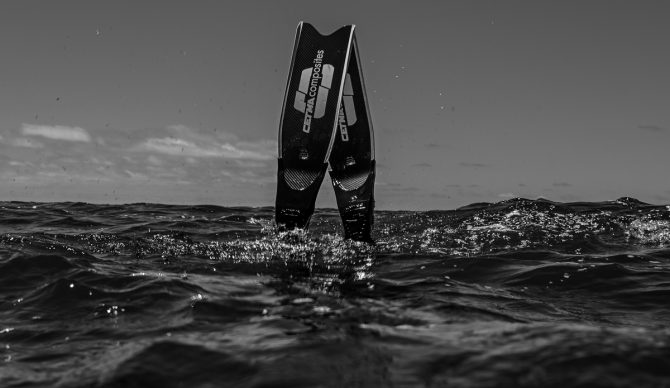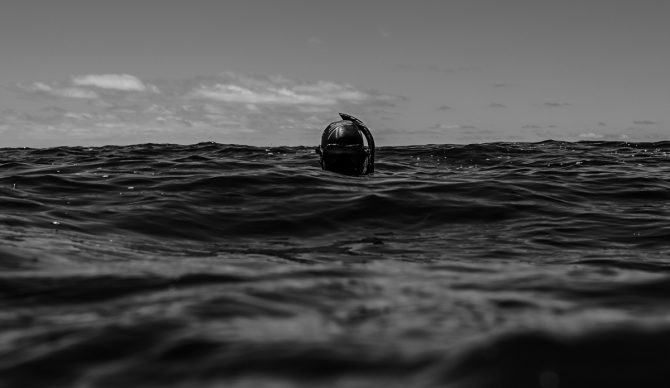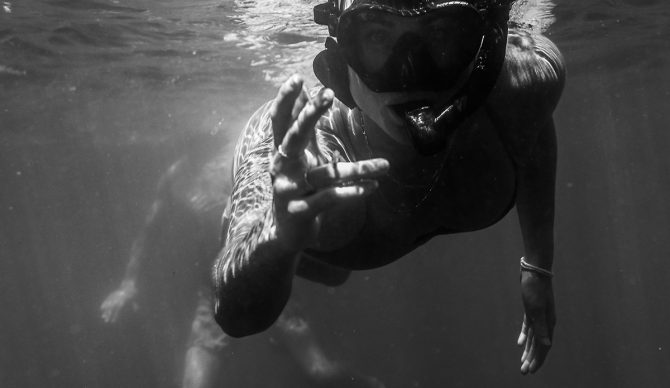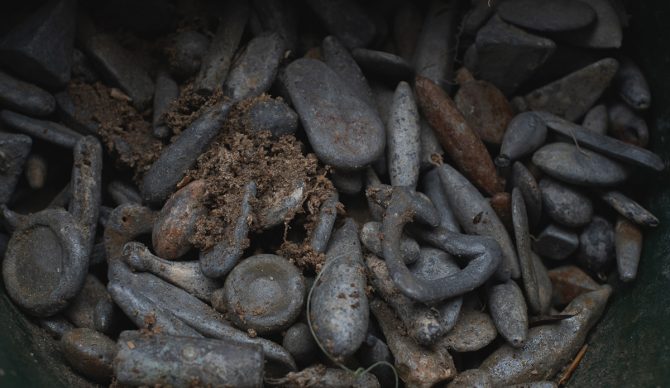
Where it all begins. Photos by Avery Schuyler Nunn
In the depths of the kelp forest, there is a certain kind of magic. Sunbeams slice through the 30-foot tall aquatic trees, starfish lay along the reefs, Garibaldi dance between flowing seagrass, and crustaceans tuck themselves into the tiniest of nooks and crannies. But among this symbiosis, there is disruption sprinkled across the seafloor. When the viz is good and the time is right, one may be able to spot a small piece of lead – a dull glow amid the forest’s vibrance.
Due to its toxicity as well as bioaccumulation, lead – often found among shipwrecks and used for fishing sinkers, pipes and lead-acid batteries – degrades marine ecosystems and various aquatic species. When marine organisms are exposed to lead-contaminated water or sediments, the lead is absorbed through their gills, skin, or via ingestion of contaminated food. As predators consume organisms, the concentration of lead in species lower on the food chain than them trickles up, increasing the amount of lead in their bodies.
Off the coast of California, old pieces of lead discarded into the ocean are abundant, but that’s where the Rancho La Bolsa Dive Club comes in. On Sundays in Laguna Beach, a renegade group of 30 or so waterpeople, spanning in age across three generations, dive into local coves to help.

Preparing to go deep.
In the ocean’s embrace, the freedivers gracefully navigate the enigmatic tapestry of the kelp forest, enduring the cold tendrils of the sea through all seasons. With each stroke, their bare skin becomes a vessel for interconnection with the depths.
In a rhythmic procession overflowing with elation for the venture, the wetsuit-less group bounds through the waves and into the deep in search of lead. The club is made up of seasoned freedivers, previous olympians, top-ranked spearfishers, artists, scientists, children, surfers, teachers – and more.
“We’re a heterogeneous group of people, but we have one thing in common: we love the ocean,” says diver Kelly Mann. “We are in, and for, this environment together.”
A dive club day typically begins in Emerald Bay, where it all surfaced back in 2020 when two locals started diving daily off of the cove’s southernmost point. Less than a week into their latest hobby, they had five hefty buckets filled with spark plugs and lead, plucked from the depths. Word spread to local Todd Miller, who has since led the club. And one by one, more and more friends and peers joined in.
“The biggest piece of it is to be one with the ocean,” says Scott McCarter, one of the earliest to start tagging along in the dives with Miller. “What an absolute treasure we have here in Laguna,” he says. “We want to preserve it, and we want to share it with others.”
Nowadays, the group has found and removed everything from anchors to skateboards, from fishing weights to old batteries – thousands upon thousands of pieces of lead. And while the clear environmental impact of the efforts compel members of the group, the profound inward sense of stillness beneath the surface, and the strong sense of community that it comes with are of equal importance.

Kelly Mann, looking for treasure.
“The impetus behind it all started because we wanted to come together,” continues Kelly Mann, the first female member of the dive club.
A few others noted that after about 20 minutes or so in the often frigid water, a sense of euphoric zest sets in, and the dopamine fills their cup throughout the whole day back on shore.
In a single dive, one may expect to find a few pieces of lead, but then there’s the occasional treasure trove. “Some people really have a knack for spotting them – it’s not easy,” continues McCarter. “But two months ago, we turned over a rock, and there were like 400 pieces of lead underneath it!”

Lead, as removed by the dive club.
Even the youngins, aptly nicknamed the “guppies” of the group, have prolonged their breath hold patterns and collected over 100 pieces of lead each. Some of them even use the lead to make art pieces and jewelry for their family. For the group, the promise of a new generation of environmentalists makes every icy plunge worth it.
“The young ones become eco warriors just by being out here with us,” says McCarter, who notes that a lot of the value comes from learning things together. “Before diving, I never knew that kelp grew so fast. I didn’t know that lobsters hangout in ledges, or that sheepshead eat abalone, or that abalone eat kelp. It’s been very educational in and of itself, and to help improve the environment makes it even better.”

